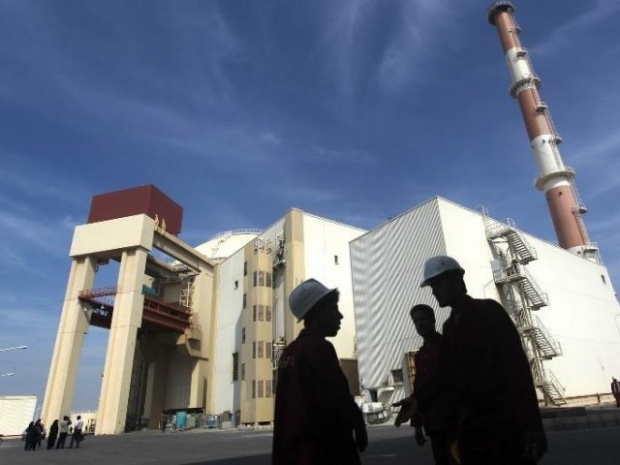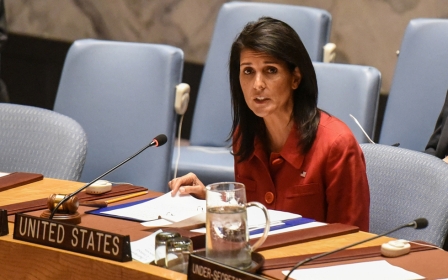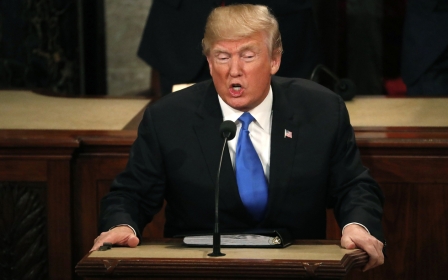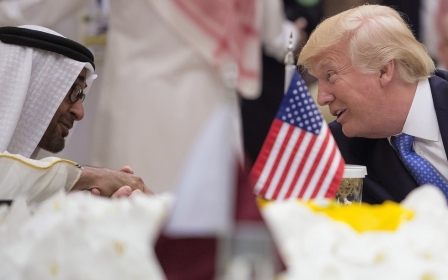Trump fires Tillerson – and says Iran deal was partly to blame
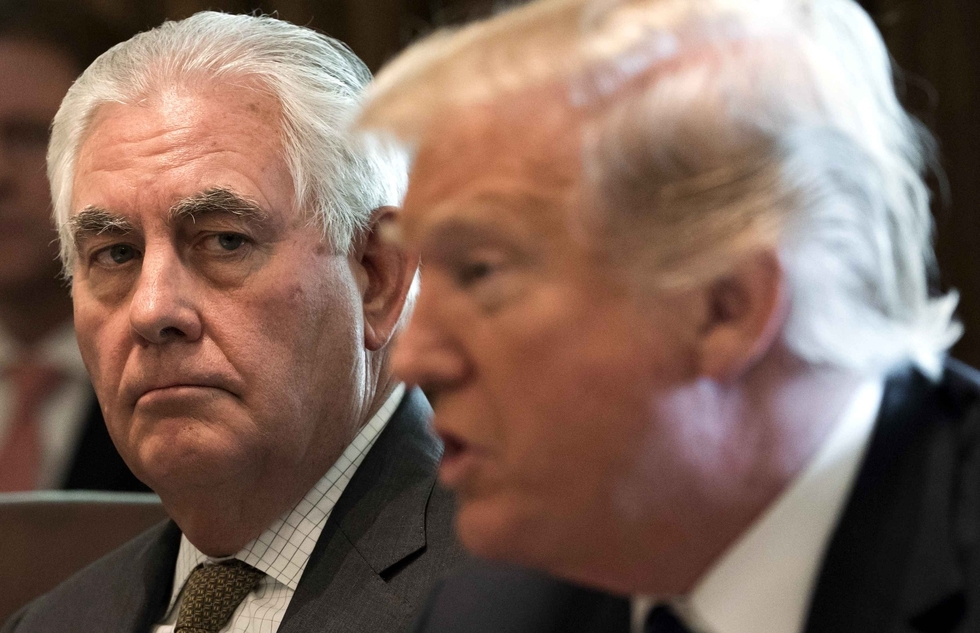
US President Donald Trump cited his disagreements with Secretary of State Rex Tillerson over the Iranian nuclear deal, as he explained his decision on Tuesday to replace him with CIA director Mike Pompeo.
"We've been talking about this for a long time," he said speaking from the White House lawn in Washington. "We got along actually quite well but we disagreed on things.
"When you look at the Iran deal, I thought it was terrible, he thought it was okay. I wanted to either break it or do something. He felt a little differently. So we were not really thinking the same."
Conversely, he said that he and Pompeo had "a similar thought process" on the issue.
Not only is [Pompeo] vehemently against the deal, he also advocates for regime change in Iran
- Holly Dagres, analyst
A spokesperson for Tillerson, who reportedly found out about the move on Twitter, said that he had been "grateful" to serve in the White House, but "did not speak to the president" before the firing and was "unaware" of the reasons for his sacking.
Reports of tensions between Tillerson and Trump had been ongoing for some time, with the administration's chief diplomat having reportedly branded the president a "moron" during a 2017 Pentagon meeting.
The latest apparent infraction occurred on Monday when Tillerson backed the UK's assertion that Russia was behind the attempted murder of former Russian spy Sergei Skripal, in contrast to Trump's own comments on the issue which did not apportion blame.
Analysts are now concerned that the Iran nuclear deal, which Trump has long branded the "worst deal ever" could finally be scrapped. While Tillerson was a critic of the deal, he had previously stated the need for a "review" of the deal rather than a full ripping up as Trump wanted.
In place of Pompeo, Trump announced the appointment of Gina Haspel, the first woman to hold the position of CIA director.
Haspel, who joined the CIA in 1985, was previously involved in the now-banned torture programme in 2002. According to the New York Times, she "oversaw the torture of two terrorism suspects and later took part in an order to destroy videotapes documenting their brutal interrogations at a secret prison in Thailand".
Two high-profile suspected al-Qaeda detainees, Abu Zubaydah and Abd al-Rahim al-Nashiri, were subjected to waterboarding and other torture methods while they were held in the secret prison.
Haspel has worked in the CIA for more than 30 years and is respected by the intelligence community and lawmakers on both sides of the aisle. However, in addition to her involvement with the "black box" interrogation cell in Thailand, she destroyed video evidence of waterboardings, the New York Times reported.
Senator John McCain, a Republican from Arizona who was tortured as a prisoner during the Vietnam War, expressed scepticism about the appointment.
“Ms Haspel needs to explain the nature and extent of her involvement in the CIA’s interrogation programme,” McCain said.
Nuclear deal in danger
Iran's Foreign Minister Mohammed Javad Zarif said on Tuesday - prior to the Tillerson firing - that Trump was being unpredictable on the nuclear deal and was in no position to set conditions for Iran to abide by.
Under the terms of the deal, the next time the sanctions waivers - which have suspended the sanctions since the deal was signed - are due to be renewed by the US is 12 May. Trump said in January that this would be the deadline to reach an agreement with France, Germany and the UK (who are all supportive of the deal) to "fix" it, or the US would withdraw.
Holly Dagres, analyst and curator of The Iranist newsletter, warned that the "Iran deal is now in more serious jeopardy than it was before.
"Pompeo has vowed to 'roll back' the nuclear deal and has even likened the Iranian government to [the Islamic State group]," she told Middle East Eye. "Not only is he vehemently against the deal, he also advocates for regime change in Iran.
"Having Pompeo take on the [nuclear deal] portfolio means all the more likely that the deal will be scrapped if Europe doesn't convince Tehran to get on board with new guidelines."
The Pompeo appointment is, however, also likely to be positively received by traditional US allies in the Middle East, some of whom viewed Tillerson with suspicion over his closeness to Qatar and his lack of force over Iran.
Having Pompeo take on the [nuclear deal] portfolio means all the more likely that the deal will be scrapped, if Europe doesn't convince Tehran to get on board with new guidelines
- Holly Dagres, analyst
Both Israel and Saudi Arabia have long been critical of the nuclear deal in particular and viewed Trump as an ally in having it overturned and taking a more forceful line on the Islamic Republic.
"Unlike Rex Tillerson, Pompeo doesn’t seem to be very supportive of their close allies, the Europeans," Iranian-American commentator Negar Mortazavi told MEE.
"He has been on the record before trying to embolden Saudi Arabia, the [United Arab] Emirates and Israel as strong allies.
"We’ll have to wait and see if the Europeans have the upper hand or the Saudi-Emirati-Israeli camp.”
She added that, with Tillerson gone, the Trump administration had effectively removed the last bastion of dissent on the issue.
"This is the [UN ambassador] Nikki Haley line of policy and rhetoric on this front," she said.
"Nikki Haley was more in tune with the president’s policy whereas Rex Tillerson - on the record and off the record - had a very different line.
"Now Secretary of State Pompeo, the UN ambassador, and the president are all, on foreign policy, going to play the same tune on Iran."
New MEE newsletter: Jerusalem Dispatch
Sign up to get the latest insights and analysis on Israel-Palestine, alongside Turkey Unpacked and other MEE newsletters
Middle East Eye delivers independent and unrivalled coverage and analysis of the Middle East, North Africa and beyond. To learn more about republishing this content and the associated fees, please fill out this form. More about MEE can be found here.


